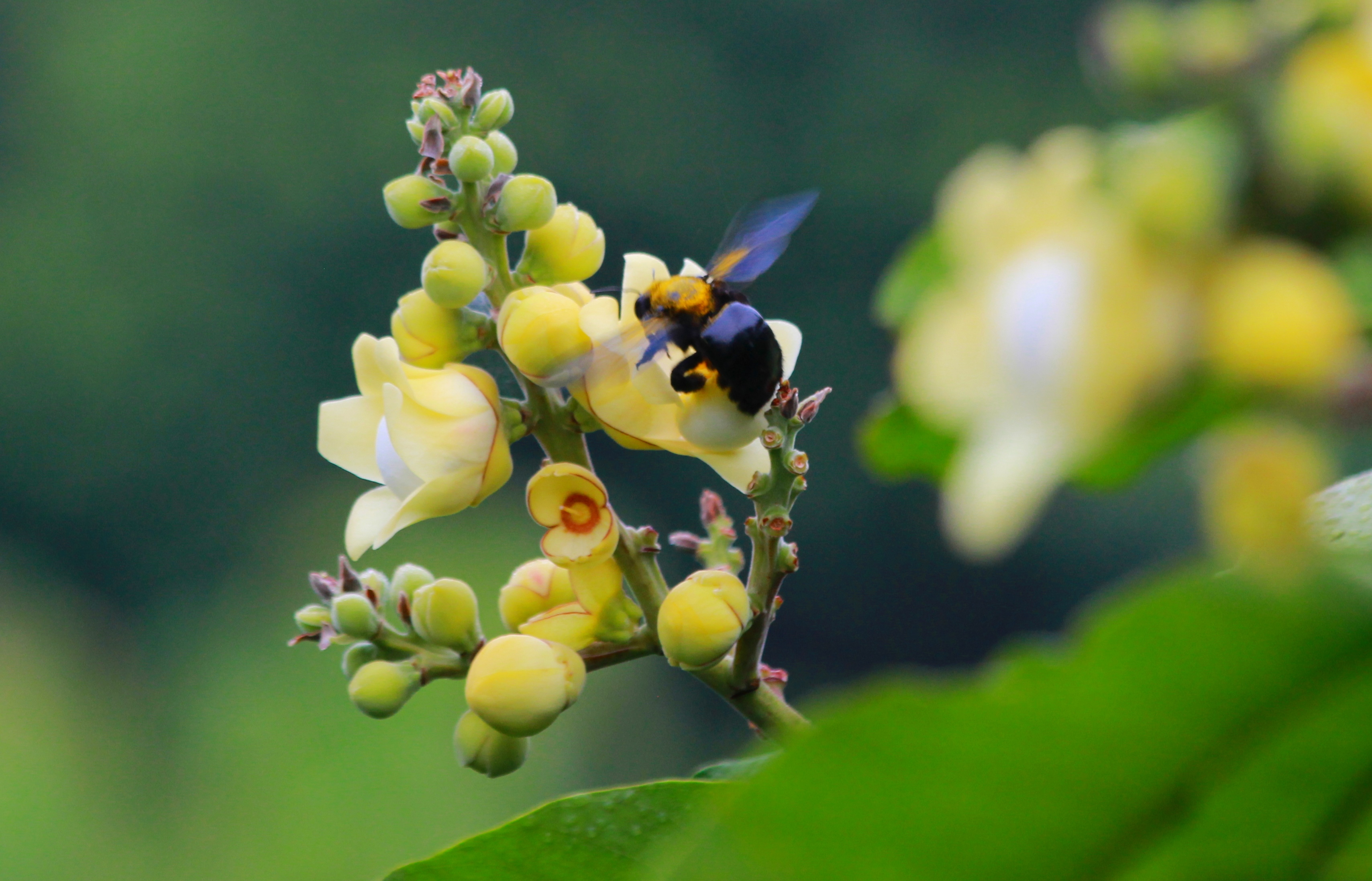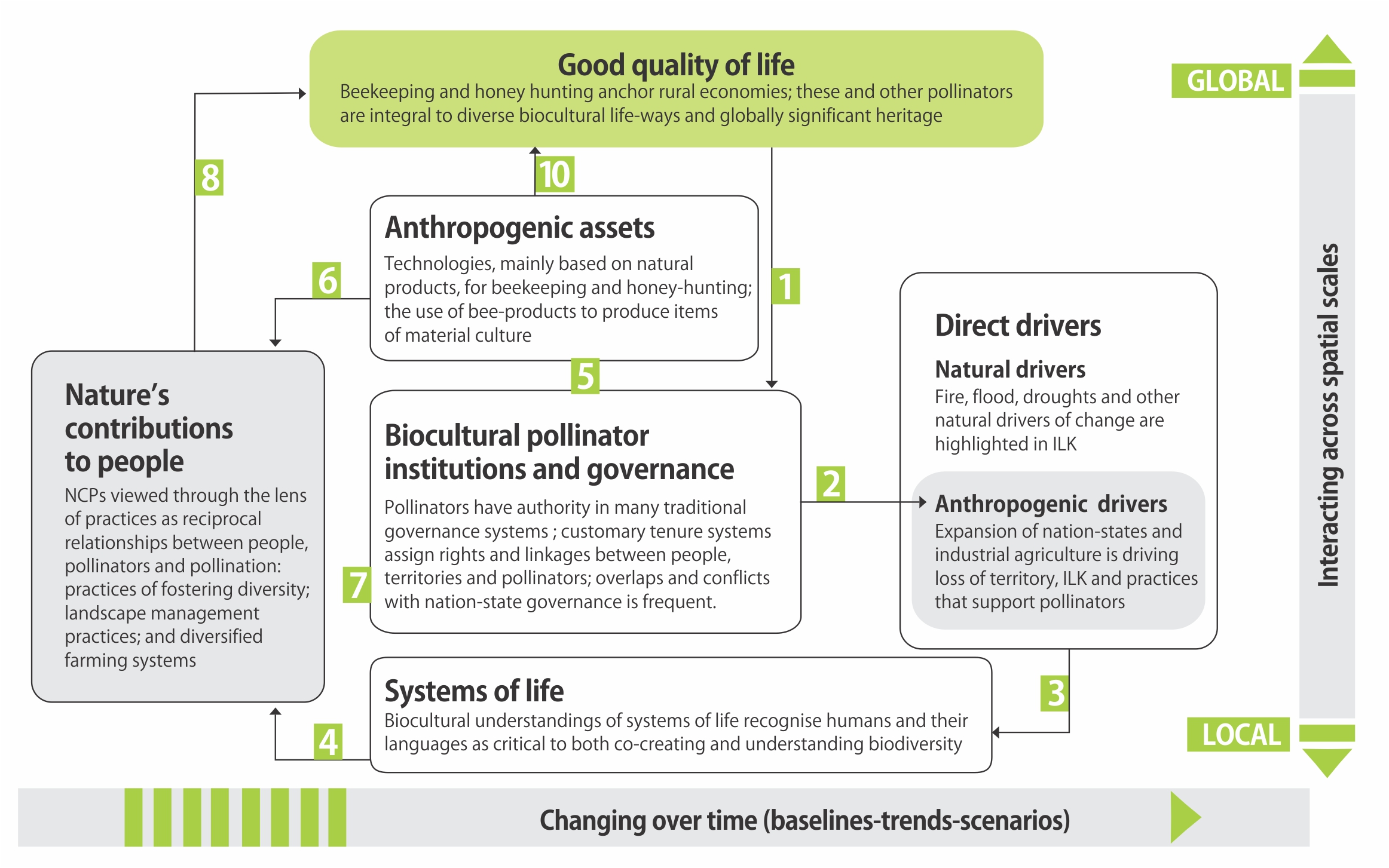Traditional communities contribute to the global environment
Traditional communities contribute to the global environment
Photo: Ronaldo Rosa

Conserving pollinators is one of the practices that have an impact in the global environment
Valuing indigenous and traditional community practices all over the world conserves more than just cultural heritage. A study recently published on the international scientific journal Nature has just shown that such community practices with pollinator management are fundamental for the environment and for human welfare in the whole planet.
The paper Biocultural approaches to pollinator conservation, a result of the work of researchers from 15 countries, including Brazil, offers a comprehensive diagnosis about how indigenous peoples and traditional communities protect pollinators in their forests, crops and fields, with multiple cultural, ecological, economic and quality-of-life benefits, either locally or worldwide. That is because such groups have maintained a relationship with nature that ranges from survival to cultural and religious issues, and they have developed complex knowledge about such ecosystems. The researchers have called such relationship biocultural diversity.

ILK - Indigenous and Local Knowledge
Framework of the analysis conducted by the researchers shows relationship between human action with the environment through a biocultural approach (Source: IPBES)
“The work used the biocultural approach to understand community practices, and revealed the importance of rescuing traditional knowledge, considering local solutions for global programs, based on conservation-friendly practices and on acknowledging the role of pollinators, especiall bees”, explains the researcher Márcia Maués, from Embrapa Eastern Amazon and one of the authors of the paper.
An example of local practice is the experience by the Gorotire (a Kayapó indigenous subgroup), in the Brazilian state of Pará, who have developed complex ethno-knowledge about bees. “This indigenous group has names for every bee body part and all their stages of development, from the egg through larvae to adult individuals”, the researcher reports. Out of the 56 native bee species named by that tribe, 86% correspond exactly to scientific knowledge.
The diagnosis was made in 60 countries and assessed hundreds of experiences published in the world's scientific literature. The researchers identified that the communities developed practices in landscape management, have diversified agricultural systems and promote pollinator species diversity in their areas, which directly entails the promotion of human welfare, food production and forest conservation worldwide.
The paper was coordinated by Australia's national research agency - Commonwealth Scientific and Industrial Research Organisation (CSIRO) - and relied on the participation of institutions from 15 countries. The Brazilian ones include Embrapa Eastern Amazon, the University of São Paulo (USP) and the Vale Institute of Technology (ITV).
Recommendation for public policy
The study has a global scope and stems from the work conducted by the Intergovernmental Science-Policy Platform on Biodiversity and Ecosystem Services (IPBES), which has pointed the importance of pollinators in ecosystem services and food production in the world.
The group of experts warns world public managers and recommends seven policies to support conservation based on the biocultural approach. These include a legal framework that supports access to traditional community knowledge and areas. In Brazil, this work is regulated by the Genetic Heritage Management Council.
Another recommendation from the researchers is to ensure traditional communities' right to land, strengthening their area and forest conservation practices. Supporting knowledge production activities shared between science and local know-how, as well as strenthening world cultural and natural heritage, are also other recommendations for public policy.
Translation: Mariana Medeiros
Ana Laura Lima (MTb 1268/PA)
Embrapa Eastern Amazon
Press inquiries
amazonia-oriental.imprensa@embrapa.br
Phone number: +55 91 3204-1200 / 99110-5115
Further information on the topic
Citizen Attention Service (SAC)
www.embrapa.br/contact-us/sac/
